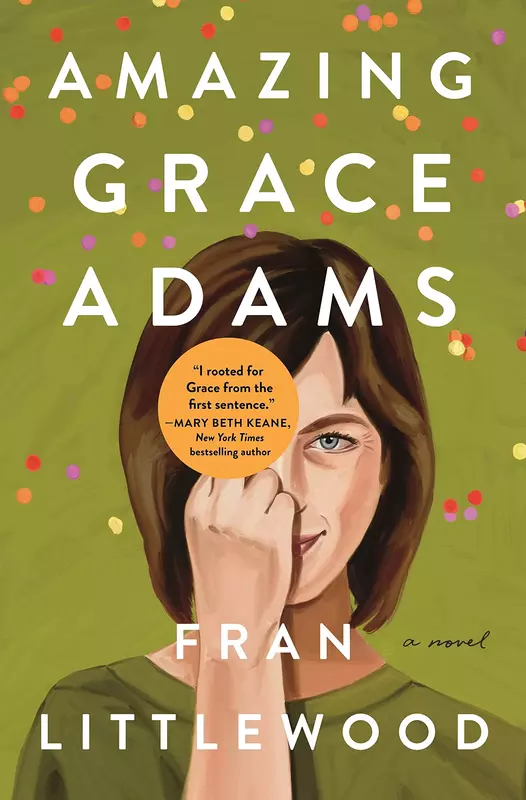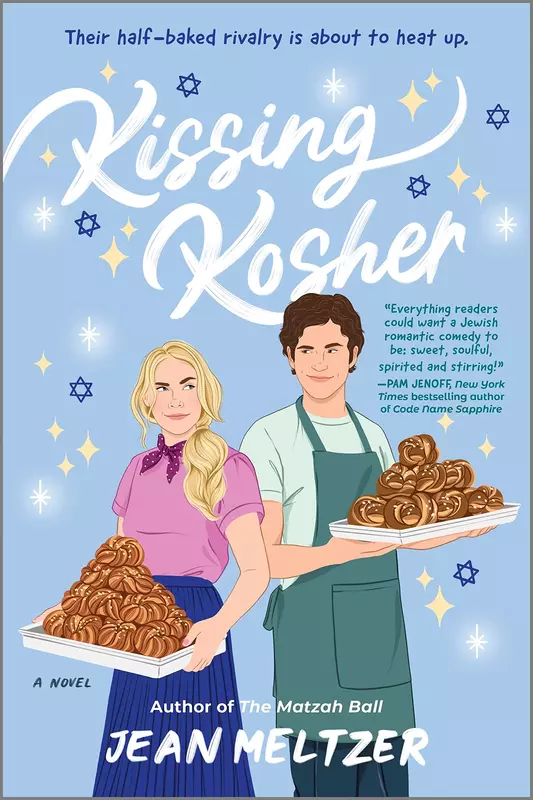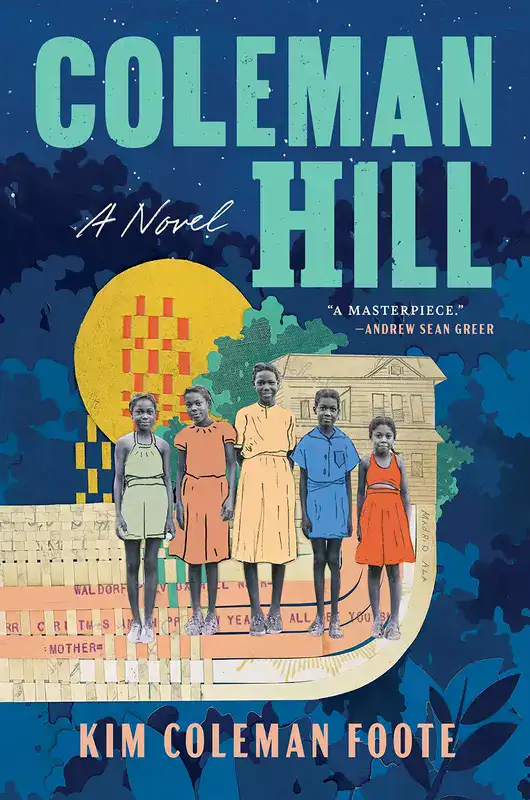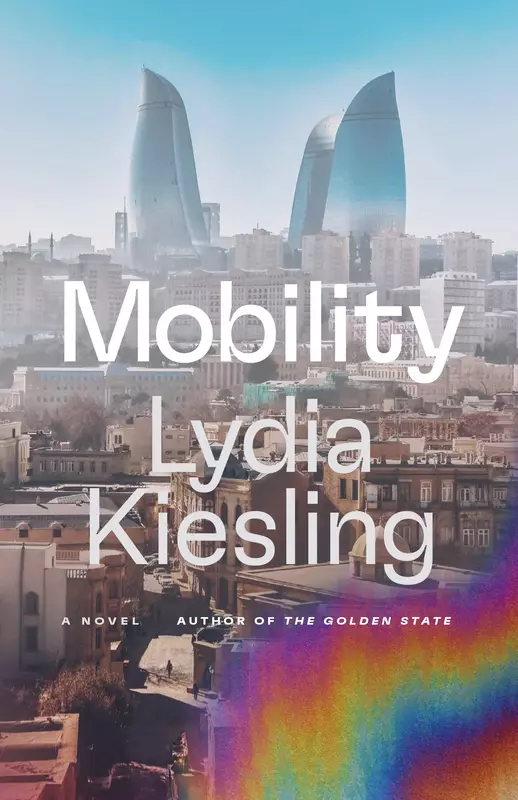This post may contain affiliate links. Read more here.
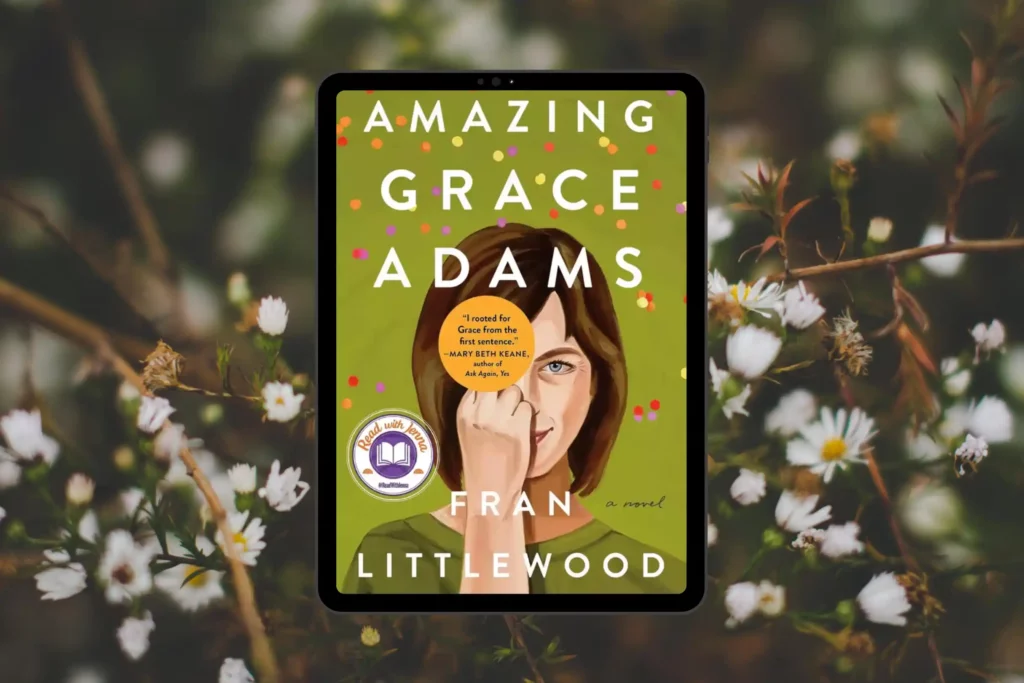
Book club questions for Amazing Grace Adams by Fran Littlewood explore the themes of family dynamics, self-discovery, resilience, and the idea that it’s never too late to reclaim one’s sense of purpose and happiness.
This is a beautifully written and heart-breaking story that is often promoted as funny, which does a disservice to the author and the book. It’s a tale about real-life grief, with the main character, Grace, doing everything to protect her lost daughter. There’s also a beautiful love story, but humor is absent. If you enjoy stories with real characters portrayed empathetically, I highly recommend it. It’s a powerful and emotionally resonant read.
What were your impressions of this novel? ✨
Amazing Grace Adams by Fran Littlewood
I hope you will enjoy the thoughtfully crafted book club questions tailored for Amazing Grace Adams in this blog post. Further below you will also find a downloadable PDF version I’ve prepared for your book clubs (available at the bottom of the post), along with supplementary suggestions for books that share similar themes and narratives.
Let me know if you find these book club questions useful. I’m excited to hear your unique perspectives during your book club discussions!
Book Club Questions | Additional Recommendations | Printable List
Summary | Ending Explained
About the Story
Amazing Grace Adams follows the story of Grace Adams, a woman who, at the age of forty-five, feels stuck and unhappy. One day, she reaches her breaking point while stuck in traffic and decides to walk away from her life.
She embarks on a journey across London with a cake in hand to reconnect with her estranged teenage daughter on her sixteenth birthday. Grace is determined to show her daughter and herself that no matter how far we fall in life, we can always find a way to rise again.
Along the way, the story explores themes of love, grace, and rediscovering one’s true self.
About the Author

Fran Littlewood holds an MA in Creative Writing from the University of London’s Royal Holloway, where she received exceptional instruction from Andrew Motion and graduated with distinction.
Prior to her academic pursuits, Fran pursued a career in journalism, including a notable stint at The Times.
She currently resides in the northern part of London with her husband and their three daughters. Amazing Grace Adams marks her debut novel!
Book Club Questions for Amazing Grace Adams
Disclaimer: the following discussion questions contain spoilers, so proceed with caution if you haven’t finished the book yet.
- How do you think the author’s choice to blend humor and serious themes influenced your reading experience? Were you surprised by the emotional depth of the story?
- Amazing Grace Adams explores the journey of a woman rediscovering herself and rebuilding her relationship with her daughter. How did these elements intertwine in the story, and did you find yourself cheering for Grace’s transformation?
- Grace, at 45, is described as experiencing a challenging stage of life. How does society often marginalize women over 40, and why do you believe this happens? In what ways does the story reshape your perspective on the women in your own life?
- On page 17, the author writes: “And standing there, staring at her stupid disappearing mouth, she pictures her daughter there moments ago, considers the fu–ing terrible timing of it all. How, just at the point that she — that all the mothers — are drying up from the inside out (or from the outside in, who could possibly call it?), the daughters are busting out all over with the exact same firm, ripe potency they are losing. And maybe the worst part is they don’t even know it.” Do you agree with this idea?
- Language is a significant element in the book, with both Grace and her husband being polyglots. How does Grace’s proficiency in multiple languages contribute to her midlife crisis? Are there any languages you speak or wish to learn, and who in your book club is the language enthusiast?
- On page 68, Grace receives divorce papers while her daughter Lotte remains unaware of her emotional turmoil. The author reflects on how teenagers can be selective and self-absorbed in their observations. Do you believe teenagers primarily notice negative aspects, or do they also see and appreciate positive aspects in their parents?
- What is the symbolic significance of the recurring theme of the cake throughout the story? How would you have reacted in Grace’s situation, and do you think this moment is pivotal in her journey?
- Later in the novel, a stranger’s kindness toward Grace prompts a reflection on the challenges she’s faced. On page 157, she says: “You’ve been in the wars.” Is Grace’s experience akin to being in a battle? How does the story depict the struggles of menopause, marriage, and motherhood?
- The book frequently delves into Grace’s past through flashbacks. How did these glimpses into her history enhance your understanding of her choices and make you more empathetic toward her character?
- On page 160, Grace says: “Sometimes I have so much rage it scares me.” Discuss the concept of female rage. Do you think society views female anger differently from male anger? Do women have valid reasons to be angry, and how does the book address this theme?
- The novel explores themes of love, hope, joy, and grief. Can you share examples of these themes within the book and identify any moments that encapsulate all four? What lessons did you personally take away from Grace’s story?
- How do you think explicit language and themes contribute to the overall tone and authenticity of the story? Did they enhance or detract from your engagement with the characters and plot?
- The book uses a non-linear narrative structure with multiple timelines. Some readers appreciated this approach, while others found it challenging. How do you feel about the use of flashbacks and alternating timelines in the storytelling? Did it affect your understanding of Grace’s character and her journey?
- Grace is described as an “invisible everywoman pushed to the brink.” How does the book explore the concept of invisibility in society, particularly in the context of women facing midlife crises? In what ways does Grace challenge or conform to societal expectations of women her age?
- Did you find the teenage daughter, Lotte, a difficult and rebellious character? Did you sympathize with Lotte’s struggles and behavior, or did you find her actions unreasonable? How does the book depict the challenges of parenting a troubled teenager?
- Grace’s journey involves a mission to deliver a birthday cake to her estranged daughter’s party. What do you think the significance of this cake symbolizes in the story? How does it represent Grace’s determination and love for her daughter, and how does it relate to her past as an “amazing” woman?
- Grace’s ability with multiple languages is briefly mentioned in the book. How do you think this aspect of her character adds depth to her persona, and would you have liked to see more exploration of this skill in the story?
- The book is described as a “gut-punch” of a read. How did the emotional intensity of the story impact your reading experience, and what aspects of the narrative resonated with you the most on a personal level?
Additional Recommendations
Hope you enjoyed the book club discussion questions and reading guide for Amazing Grace Adams by Fran Littlewood!
Here are some more of my book club recommendations related to this book:
Kissing Kosher by Jean Meltzer
From the author of THE MATZAH BALL and MR. PERFECT ON PAPER comes this hilarious and emotional rivals-to-lovers romance.
Step 1: Get the secret recipe. Step 2: Don’t fall in love…
Avital Cohen isn’t wearing underpants—woefully, for unsexy reasons. Chronic pelvic pain has forced her to sideline her photography dreams and her love life. It’s all she can do to manage her family’s kosher bakery, Best Babka in Brooklyn, without collapsing.
She needs hired help.
And distractingly handsome Ethan Lippmann seems the perfect fit.
Except Ethan isn’t there to work—he’s undercover, at the behest of his ironfisted grandfather. Though Lippmann’s is a household name when it comes to mass-produced kosher baked goods, they don’t have the charm of Avital’s bakery. Or her grandfather’s world-famous pumpkin spice babka recipe.
As they bake side by side, Ethan soon finds himself more interested in Avital than in stealing family secrets, especially as he helps her find the chronic pain relief—and pleasure—she’s been missing.
But perfecting the recipe for romance calls for leaving out the lies…even if coming clean means risking everything.
Coleman Hill by Kim Coleman Foote
Coleman Hill is the exhilarating story of two American families whose fates become intertwined in the wake of the Great Migration. Braiding fact and fiction, it is a remarkable, character-rich tour de force exploring the ties that bind three generations.
In 1916, during the early days of the Great Migration, Celia Coleman and Lucy Grimes flee the racism and poverty of their homes in the post–Civil War South for the “Promised Land” of Vauxhall, New Jersey. But the North possesses its own challenges and bigotries that will shape the fates of the women and their families over the next seventy years. Told through the voices of nine family members—their perspectives at once harmonious and contradictory—Coleman Hill is a penetrating multigenerational debut.
Within ten years of arriving in Vauxhall, both Celia and Lucy’s husbands are dead, and they turn to one another for support in raising their children far from home. Lucy’s gentleness sets Celia at ease, and Celia lends Lucy her fire when her friend wants to cower.
Encouraged by their mothers’ friendship, their children’s lives become enmeshed as well. As the children grow into adolescence, two are caught in an impulsive act of impropriety, and Celia and Lucy find themselves at irreconcilable odds over who’s to blame. The ensuing fallout has dire consequences that reverberate through the next two generations of their families.
A stunning biomythography—a word coined by the late great writer Audre Lorde—Coleman Hill draws from the author’s own family legend, historical record, and fervent imagination to create an unforgettable new history. The result is a kaleidoscopic novel whose intergenerational arc emerges through a series of miniatures that contain worlds.
Mobility by Lydia Kiesling
Bunny Glenn believes in climate change. But she also likes to get paid.
The year is 1998. The Soviet Union is dissolved, the Cold War is over, and Bunny Glenn is a lonely American teenager in Azerbaijan with her Foreign Service family. Through Bunny’s bemused eyes, we watch global interests flock to her temporary backyard for Caspian oil and pipeline access, hearing rumbles of the expansion of the American security state and the buildup to the War on Terror.
We follow Bunny from adolescence to middle age—from Baku to Athens to Houston—as her own ambition and desire for comfort lead her to a career in the oil industry, eventually returning to the scene of her youth, where slippery figures from the past reappear in an era of political and climate breakdown.
Propulsive and thought-provoking, empathetic yet pointed, Mobility is a story about class, power, politics, and desire told through the life of one woman—her social milieu, her romances, her unarticulated wants.
Through Bunny’s life choices, Lydia Kiesling masterfully explores American forms of complicity and inertia, moving between the local and the global, the personal and the political, and using fiction’s singular power to illuminate a life shaped by its context.
Printable PDF
Feel free to distribute these discussion questions to your book club members before your meeting. Simply click the link below to download and print the PDF file.
Happy reading! ❤️
